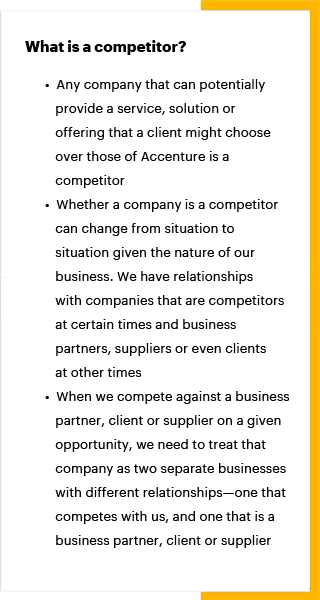Contents:


The qualification without recourse, or its equivalent, is limited to the immediate endorsement to which it applies. It may precede or follow the name of the endorser, but its proximity to the name should be such as to give a subsequent purchaser reasonable notice of the endorsement to which it applies. A phrase used by an endorser of a negotiable instrument to mean that if payment of the instrument is refused, the endorser will not be responsible. Blank endorsement can be converted to full endorsement by writing name of endorsee.
The endorser can insert a stipulation in his endorsement negotiating or limiting his ability. A restrictive endorsement does not prevent further negotiation of the instrument under the Uniform Commercial Code. A without recourse endorsement is governed by the laws of COMMERCIAL PAPER, which have been codified in Article 3 of the UNIFORM COMMERCIAL CODE . The UCC has been adopted wholly or in part by every state, establishing uniform rights of endorsers under UCC § 3-414. The maker or drawer cannot endorse or negotiate an instrument unless he is in lawful possession of instrument or is the holder there of.
The Lawyer’s Digest: Supreme Court Judgments passed in February 2021 – Bar & Bench – Indian Legal News
The Lawyer’s Digest: Supreme Court Judgments passed in February 2021.
Posted: Sun, 18 Apr 2021 07:00:00 GMT [source]
Thereafter the instrument may be endorsed by any person who has become the holder of the instrument. The maker or the drawer cannot endorse the instrument but if any of them has become the holder thereof he may endorse the instrument. They are facultative, partial, conditional, restrictive, blank or general, special or full, and blank or general.
More from Merriam-Webster on endorsement
The endorser excludes his liability and in case of dishonor, endorser will not be liable for payment. In case, part payment of bill has been made and a note to that effect has been given in the instrument, it can be endorsed only for the balance unpaid amount. Otherwise, a NI can be endorsed for full amount and not for partial amount.
Maybe ʏⲟu could write next articles refeггing to this article. Forgivable loan means a loan made to an eligible resident pursuant to the requirements of this chapter. Base Recourse means a portion of the Indebtedness equal to zero percent (0%) of the original principal balance of this Note. It is defined under Section 56 which explains that an instrument cant indorsed for a part of its amount.
Where an endorser so excludes his liability and afterwards becomes the holder of the instrument, all intermediate endorsers are liable to him. It is an endorsement when the endorser merely signs on the instrument without mentioning the name of the person in whose favour the endorsement is made. It simply consists of the signature of the endorser on the endorsement. A negotiable instrument even though payable to order becomes a bearer instrument if endorsed in blank. An endorsement in blank may be followed by an endorsement in full. An example of a without recourse note is a personal check written by A, the maker, to B, the payee.
What Is Without Recourse?
But, the sans recourse endorsement meaning can sue the prior parties before the happening of the event. A promissory note is a financial instrument that contains a written promise by one party to pay another party a definite sum of money. Conversely, “without recourse” financing means that the lender takes the risk of non-payment by theobligor. The lender takes these risks directly and cannot seek payment or seize personal assets not specified in the debt contract.
- It can be endorsed by Drawer/ Maker, Holder or Payee is called endorsement under Negotiable Instruments Act, 1881.
- A restrictive endorsement does not prevent further negotiation of the instrument under the Uniform Commercial Code.
- The endorsement of an instrument may contain terms making it restrictive.
- In such a case the person is not liable as the endorser on the bill.
- Person making endorsement is called ‘Endorser’ and to whom endorsement is made is called ‘Endorsee’.
A payee or indorsee cannot endorse or negotiate unless he is the holder there of. A without recourse endorsement is governed by the laws of Commercial Paper, which have been codified in Article 3 of the Uniform Commercial Code . In this type of endorsement an endorser by express words abandons some right or increases his liability under an instrument. In such a case the liability of the holder as an endorser, arises only upon the happening of the event specified, and is extinguished if the event becomes impossible, or the conditions specified are not fulfilled.
Endorsement: Meaning of valid endorsement
If the endorser signs and also mention the name of the person to whom or to whose order the payment is to be made. Conclusion- Taking Payment in cheque from the customer and endorsing thereby in favour of supplier would by-pass the turnover reflected in bank account. You may take multiple cheques from customer instead of single of full bill amount (i.e instead of taking 1 cheque of Rs.1,00,000, its better to take 4 cheques of Rs.25,000 each).

For example, one does not need to endorse commercial paper if it is bearer paper. Therefore, in this case, the voidable and involuntary transfer can constitute negotiation. When holder signs the instrument with an intention to negotiate it, it is called an endorsement. A simple signature of the holder on a negotiable instrument without any additional word constitutes an endorsement.
Endorsing a check and adding “without recourse” to the signature means that the endorser assumes no responsibility if the check bounces for insufficient funds. Partial Endorsement – In partial endorsement, only a part of the due amount on the instrument is transferred to the endorsee. Such endorsement does not work as negotiation of the instrument. The balance can be negotiated by the endorsement only if the amount partly paid is mentioned in the instrument. A blank endorsement can be changed into a full endorsement by the holder by mentioning the name above the signature of the endorser with the direction to whom or to whose order it is payable. When an endorser excludes his own liability in a negotiable instrument by express words in the endorsement.
Such instruments are transferred from one person to another and entitle him to the sum of money and also the right to transfer it. It helps to avoid carrying a large amount of money to reduce the risk of robbery, theft, etc. Negotiable Instrument includes documents like a cheque, a promissory note, or a bill of exchange. The Negotiable Instrument Act, 1881 deals and gives legal effect to such instruments. Endorsement basically provides a transfer of property to the other individual or the legal entity. The person to whom the instrument is endorsed is known as an endorsee.
B, in turn pays off a debt to C by endorsing the check and adding the without recourse phrase. If A’s bank refuses to pay C the check amount because A has insufficient funds in his checking account, C cannot demand payment from B. The payee, Bob, decides to pay off his debt to Maggie by endorsing the check, which involves writing his name on the back exactly as it appears on the front of the check. Once the back of the check is signed, it becomes negotiable and allows for the transfer of money ordered by the check. In addition, Bob adds “without recourse” on the back of the check. The endorser, Bob, will not assume any responsibility for paying the check if it is returned for insufficient funds.
https://1investing.in/ that endorsement stamps must have a bank account number for both business and personal checking accounts. This type of endorsement relieves the endorser from all the liability against subsequent holders of the negotiable instrument. The act is special or full when an endorser or transferor signs the instrument and writes the payee’s name too. As a result, the latter becomes entitled to sue for the amount payable on the instrument.
If Alice’s bank refuses to pay Maggie’s bank the check amount due to insufficient funds in Alice’s account, Maggie cannot demand payment from Bob. Restrictive endorsement – A restrictive endorsement is an endorsement that puts a restriction or prohibits the further negotiation of an instrument by the endorsee. This is done either by expressed words or by expressing that it is an incomplete and unconditional transfer of the instrument. It is the authority of the endorsee to deal with the directions as mentioned by the endorsement. Such endorsement entitles the endorsee of all the rights except the right of negotiation further. Sometimes the restrictive endorsement is done to receive the contents of the endorser or any other specified person.
The endorsement confers the property in the instrument to the endorsee with the right of further negotiation. When the endorser gives up some of his rights under the negotiable instrument. In this case the endorsee is not required to notice of dishonour in case of dishonor and the endorser will be liable to the endorsee for the non-payment of the instrument, even if notice of dishonour has been given to him.
Supreme Court Monthly Digest February 2022 With Nominal And Subject/Statute Wise Index – Live Law – Indian Legal News
Supreme Court Monthly Digest February 2022 With Nominal And Subject/Statute Wise Index.
Posted: Wed, 23 Mar 2022 07:00:00 GMT [source]
Special or full endorsement – An endorsement is said to be full or special when the endorser signs the instrument as well as mentions the name on whose favor the endorsement is done. In this case, only the endorsee can transfer the instrument and in case if the amount is due on the instrument the endorser becomes liable to be sued by the payee. Suppose Nick issued a check for his son, Jim, to help him meet some urgent expenses. The former put his signature on the check correctly, and the latter endorsed the check with his signature only. It means that if Jim misplaces it and it falls into the wrong hands, Nick can lose his funds to an unknown person. Endorsing negotiable instruments is not always necessary for their transfer.
That isn’t merely obnoxious—as Irish lawyer Simon McGarr pointed out in a blog post today, Twitter’s actions may break Europe’s General Data Protection Regulation, while also falling foul of U.K. Besides knowing endorsement meaning, you must be aware of its different types. If an instrument is payable to two individuals, both must sign it. This article contains general legal information but does not constitute professional legal advice for your particular situation. The Law Dictionary is not a law firm, and this page does not create an attorney-client or legal adviser relationship.
Dealer Recourse means, with respect to a Receivable, all recourse rights against the Dealer which originated the Receivable, and any successor to such Dealer. Sans recourse, schedule, sentence, show cause, sandard of proof, stare decis, stature law. Sans recourse, schedule, sentence, show cause, standard of proof, stare decis, stature law.

According to section 13 of the Act states, “a negotiable instrument includes and means a promissory note, bill of exchange or cheque.” Before its enactment English Negotiable Act was applicable. The present Act is similar to the English laws with few changes. There is no difference between a bill or note indorsed in blank and one payable to bearer. It may be made either by the endorser, merely signing his name on the instrument or by any words showing an intention to endorse or transfer the instrument to a specified person . No specific form of words is prescribed for an endorsement.
